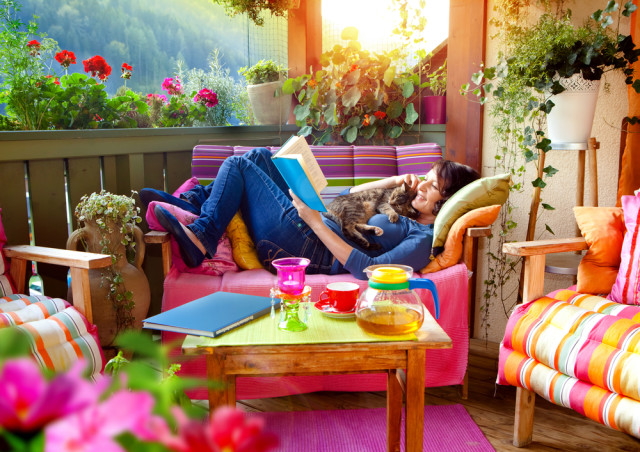Gardening for tenants

Gardening is a form of relaxation and an essential part of a home for many Australians. If you are renting your home or live in an apartment, you may feel that a garden is out of the question, so you miss out on having somewhere quiet and peaceful to go and “potter” as a respite from daily stresses.
However, with some simple planning and creativity, a temporary garden can be just as enjoyable as a permanent one.
One of the easiest ways to create a non-permanent garden is through the use of pots and tubs that can be placed in a garden, on a veranda or balcony. Mix large tubs with smaller ones in front for a more natural effect, and create mini gardens in the pots by growing several plants together. Wheeled bases are available in nurseries, and are perfect for manoeuvring larger plants.
Sit in the space for a few moments and think about the sort of plants you would like there. Tall growing ones for privacy? Try clumping bamboo. Something that will flower profusely in a corner that never sees the sun? Impatiens comes in a variety of colours, and only ever needs watering to encourage it to bloom all year round.
If you have a sunny spot, look into growing food plants such as herbs, salad greens, tomatoes, radishes or peas. Even citrus will grow in pots, especially the newer dwarf varieties and cumquats.
Tend to your garden by fertilising and watering it regularly to encourage lush growth, as unkempt pots with forgotten, spindly brown plants not only look ugly, but give you no sense of satisfaction and peace.
Transportable compost containers and worm farms can fit easily in the backyard or balcony so food scraps can be recycled for composting or fertiliser, and there is a large range of easily moved solar-powered lighting and plug-in water features available on the market.
Pebbles or peat moss arranged around the tops of the pots will make the plants look tidier, more permanent and attractive, as well as being excellent mulch and can easily be disassembled for moving. A quick trip to your local nursery should help you discover what plants would suit your setting.